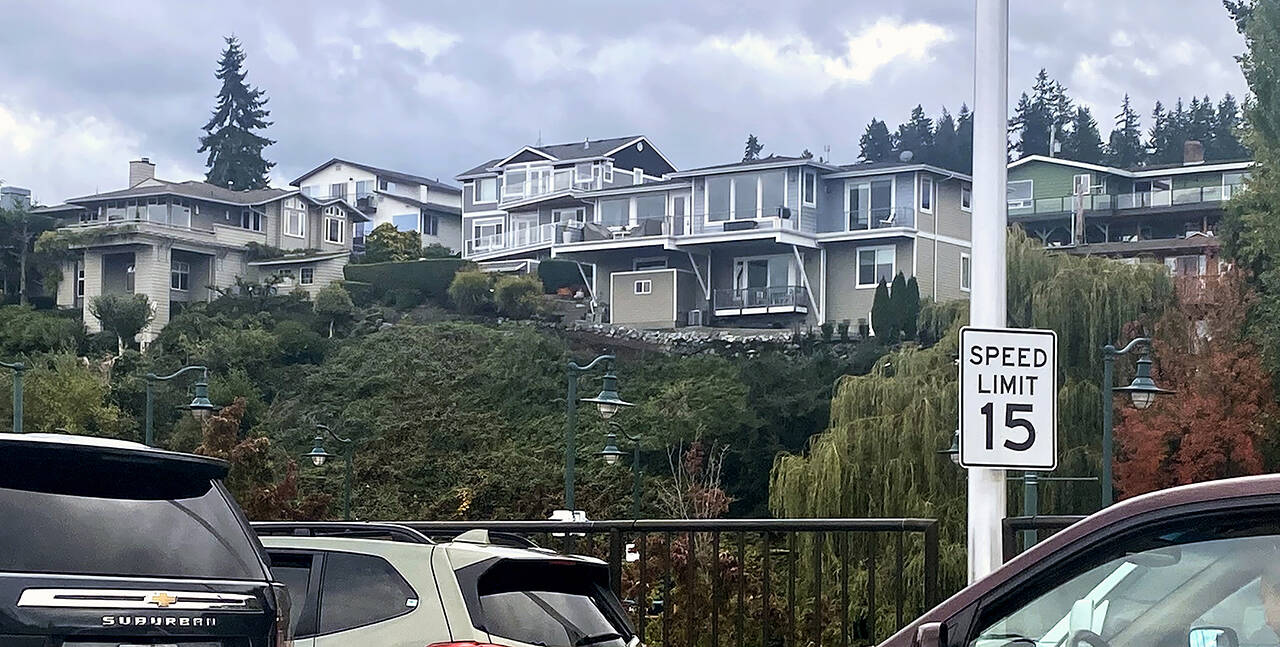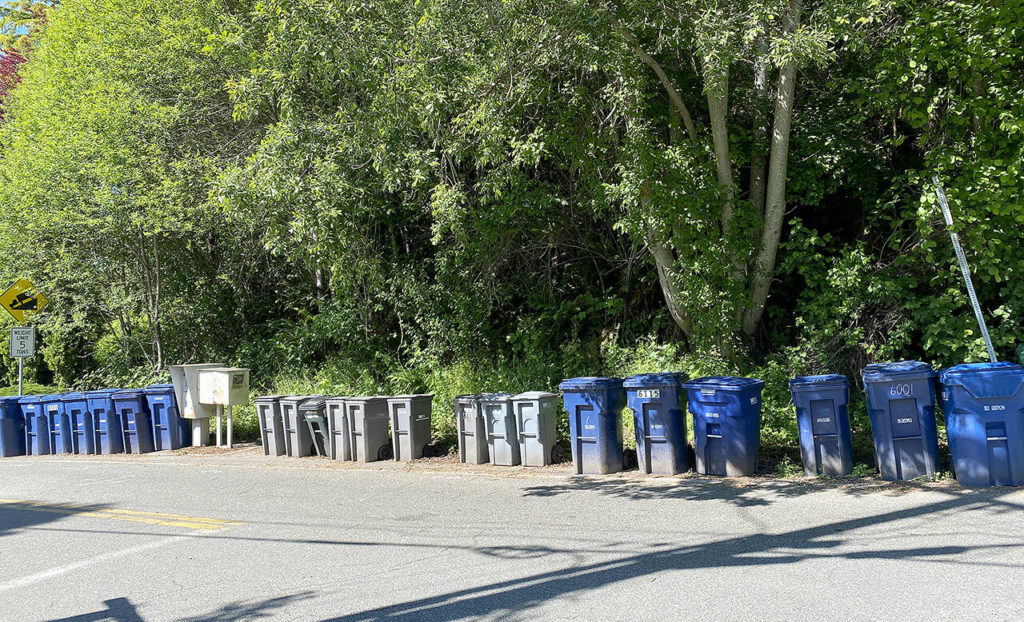MUKILTEO — “Do you think the City should encourage more high density housing to be built in Mukilteo?”
It’s a seemingly simple question Mukilteo voters will answer on the ballot in November.
It’s an advisory measure, meaning the outcome won’t immediately affect anything. The city council may consider the results when making future decisions, but it isn’t required to do so.
Mukilteo’s contentious discussions about housing, housing density and the housing action plan can be difficult to follow. Here’s what voters should know.
What does ‘high density housing’ mean?
There isn’t an exact definition. Housing density is measured by the number of dwellings per acre, but there isn’t a universal definition for “high density.”
The Daily Herald heard different definitions from the citizens who drafted the voter pamphlet statements, the city councilmember who proposed the measure and the mayor.
“Nobody is voting on the same thing and the context means everything,” said Glen Pickus, a former Mukilteo city planner. “I couldn’t begin to tell you what ‘high density housing’ means in Mukilteo.”
Pickus, now the planning director for the city of Snohomish, helped draft a statement for the voters’ pamphlet in favor of the ballot measure. However, the planning director said the question never should have been placed on the ballot and likened it to the city asking the general public what size drain pipes it should use.
Committee members who wrote the opposing statement emailed The Herald that they consider high density housing to mean rezoning single-family neighborhoods to multifamily neighborhoods. Mukilteo Mayor Jennifer Gregerson said high density is subjective, but in Mukilteo, she considers it to be anything that’s denser than what the city currently allows in any of its neighborhoods. City Councilmember Joe Marine, who is running for mayor, previously told The Herald high density means anything other than a detached, single-family home.
Why is this measure on the ballot?
Marine proposed the advisory measure in June. The mayoral candidate previously told The Herald that the purpose of the measure is to make the community’s opinion clear for future decisions.
The city council approved placing the advisory measure on the ballot, but it faced significant criticism. The city council had just spent more than a year in a heated discussion over a housing action plan. Drafts of the plan, commonly referred to as the HAP, suggested the city should allow more duplexes and townhouses, among other things.
It caused a public outcry and the city council chose not to pursue those options.
“This issue is done, in my opinion,” City Councilmember Richard Emery said during a public discussion. “We don’t have to ask people. They spoke during the HAP process and the council responded to what people told us. I think this ballot measure is redundant.”
Is the city considering a specific issue related to housing density right now?
No. The city council is not considering any decisions related to housing density right now. The city’s next major discussion about housing will most likely take place when Mukilteo updates its comprehensive plan.
Will the city consider issues related to housing density in the future?
Probably. State law requires many counties and cities to plan to provide enough housing to keep pace with population growth. Cities explain how they will do that through a Comprehensive Plan.
Cities update their plans every eight years, using new population projections from the state. Mukilteo is required to update its comprehensive plan by 2024 to comply with the Growth Management Act.
“Your responsibility is to demonstrate — based on your development codes, zoning regulations, etc. — (how) that population can be housed in your community,” Mukilteo City Administrator Steve Powers said.
If a city doesn’t comply with the GMA, that can hamper its chances at receiving certain grants. The city’s community outreach process will most likely start in 2022, Powers said.
Why did (or would) the city consider increasing its housing density?
Ultimately, there just isn’t enough housing for everyone right now. The city’s population has already reached 98% of its projected population for 2035, Powers said.
The city council is balancing three things: meeting its obligations under the Growth Management Act, keeping residents happy and providing enough housing for people. A recent study of Mukilteo’s housing needs found 94% of the city’s workforce lives outside city limits, due to a lack of housing.
The study concluded the city needs not only more housing, but a greater variety of housing options. However, most of the city’s residential land is zoned to only allow single family homes.
Does this measure have anything to do with the HAP? Can I stop the HAP?
No. The city council already adopted the housing action plan in June.
However, the final version differed drastically from earlier drafts. The only strategy related to housing density — not necessarily “high density housing,” just density in general — is one in which the city will explore more housing options for Mukilteo’s older adults.
One strategy the community suggested, and the city will probably consider in the future, is allowing accessory dwelling units in more areas of Mukilteo. The structures, sometimes called “mother-in-law apartments,” could be homes for older adults — a demographic the city has aimed to assist.
The purpose of the housing action plan was to study the city’s needs and to use community input to find ways the city could address those needs. The city council approved three strategies in the end: educating residents about existing programs that could help them stay in their homes, updating the city’s comprehensive plan and expanding housing options for older adults.
Katie Hayes: katie.hayes@heraldnet.com; Twitter: @misskatiehayes.
Katie Hayes is a Report for America corps member and writes about issues that affect the working class for The Daily Herald.
Talk to us
> Give us your news tips.
> Send us a letter to the editor.
> More Herald contact information.


























